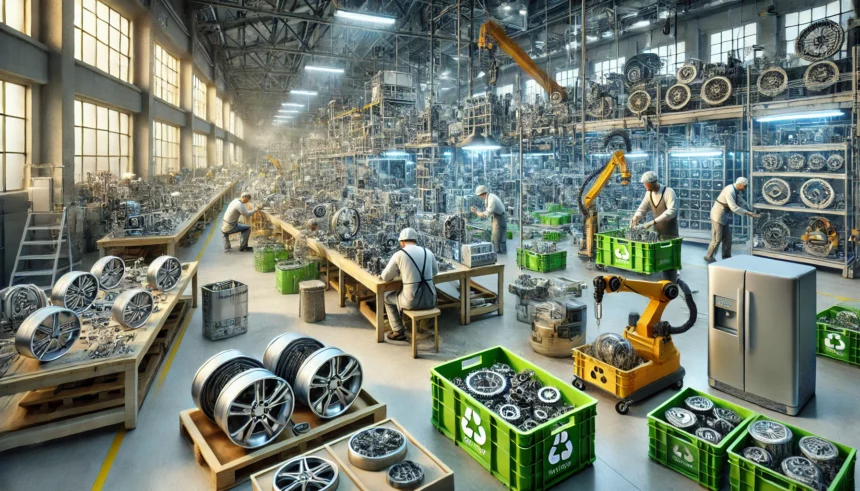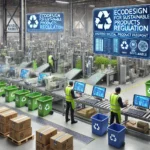Introduction
The European Union has introduced a new law aimed at making everyday products more sustainable. The Ecodesign for Sustainable Products Regulation (ESPR) is set to change how products are made, used, and recycled in the EU. This regulation aims to reduce the environmental and climate impact of products while providing benefits for consumers and businesses.
Key Features of the ESPR
The ESPR covers a wide range of products and focuses on several important aspects:
- Product Longevity: Products will be designed to last longer.
- Ease of Repair and Recycling: Products will be easier to repair and recycle.
- Reduction of Harmful Chemicals: Fewer problematic chemicals will be used.
- Use of Recycled Materials: More recycled materials will be included in products.
- Energy and Resource Efficiency: Products will be more efficient in their use of energy and resources.
Benefits for Consumers
For consumers, this means:
- Lower Costs: Longer-lasting and more efficient products can save money.
- Less Hassle: Easier repairs and recycling mean less trouble when products break or wear out.
Boost for Businesses
The new regulation will also benefit businesses by:
- Creating a Level Playing Field: All companies will need to meet the same standards.
- Encouraging Innovation: Companies can compete by offering more sustainable products.
- Job Creation: Activities like remanufacturing and recycling can create new jobs.
New Requirements
The ESPR will set requirements for various aspects of products, including:
- Durability and Reusability
- Upgradeability and Reparability
- Energy and Resource Efficiency
- Recycled Content
- Carbon and Environmental Footprints
Digital Product Passport
One of the most innovative aspects of the ESPR is the introduction of a Digital Product Passport. This scannable tag on products will provide information on their sustainability, helping consumers make informed choices and enabling better enforcement of regulations.
Stopping Wasteful Practices
The ESPR also aims to end the practice of destroying unsold consumer products. Companies will need to take measures to prevent this waste, and large companies will have to publicly report how many products they destroy and why.
Implementation Steps
- Ecodesign Forum: A new forum will be established to gather input from stakeholders.
- Working Plans: The Commission will publish multiannual working plans listing the products and measures to be addressed.
Quotes from EU Leaders
Maroš Šefčovič, Executive Vice-President for the European Green Deal, said: “Today, we set the bar higher to ensure that resource and energy-efficient products become the norm on the EU market. This regulation provides new business opportunities, creates innovative jobs, and offers more value for consumers.”
Kadri Simson, Commissioner for Energy, added: “EU rules have a proven track record of making household products more energy efficient. These measures directly benefit consumers by lowering their household bills and allowing them to play an active role in the clean energy transition.”
Background
The ESPR is part of the EU’s Circular Economy Action Plan under the European Green Deal. Products use significant resources and have a major environmental impact throughout their lifecycle. The ESPR aims to reverse these trends by making sustainable products the norm in the EU market.
Conclusion
The Ecodesign for Sustainable Products Regulation is a significant step towards a more sustainable future. By making products more durable, repairable, and recyclable, the ESPR will benefit consumers, businesses, and the environment alike.
















